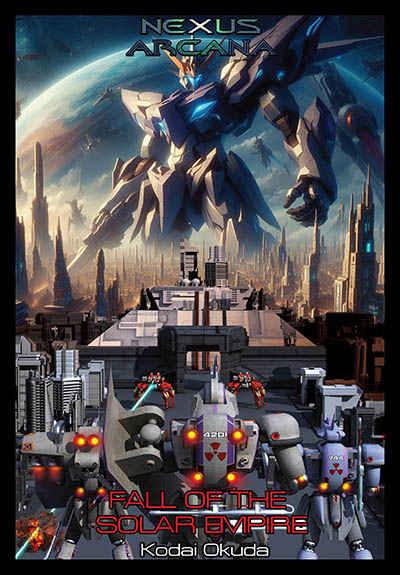Indie Books
by , 10-22-2011 at 08:02 PM (133331 Views)
Indie Authors and Bad (or No) Editing
I have noticed a bit of complaining on the internet about indie authors and the sheer volume of them that offer unedited or poorly edited works for sale. I have read comments from both extremes: authors who say they refuse to edit or care (the “What do you want for $.99?” argument) and readers who trash a book over one misspelled word or homophone in the book’s description (these types are typically infatuated with traditional [big six] publishers and the idea of “gatekeeping”). As usual, there needs to be a balance, and sanity and reality need to edge their way into the discussion.
I must say that I was shocked when my assumption that ebooks were all professionally done was blown right out of the water. I had erroneously presumed that amazon and smashwords would not allow unedited works to be sold, but this, of course, is not the case. I do find it refreshing to see a free market system in action, though.
Sellers are free to list anything they want, and I wouldn’t want it any other way, but there is just not a single argument that can justify selling an unedited novel AND labeling yourself a professional author. You are NOT a professional author; you are just someone trying to make a buck or two. And there is nothing wrong with that, because there are people who are willing to buy those products. I just hope that the ebook marketplaces will find a way to separate the good stuff from the rest of the pile for those who prefer to read one or the other.
I would also like to address the issue of being “too poor” to afford an editor. I’m sorry, but this is not a justifiable excuse. If this is the case, you will have to learn to edit on your own to the best of your ability. Dictionaries and Harbrace manuals (see below) can be acquired used for dirt cheap on ebay, at a used bookstore, or from a library book sale. If even that is out of your reach, there are numerous free online websites to help you with the basics of grammar, punctuation, and word usage - the main complaint of many online posters. (Not to mention that the “basics” are things you should have learned in high school - this is not advanced material here, people!) If you want to try your hand at content editing, there are sites for that kind of help also. If you can’t do the bare minimum of proofreading with free online help, then you are just lazy. Again, there is no excuse IF you wish to keep company with the pros.
Here are a few words to the indie authors out there: (Stick around, readers, you’re next!)1) If you wish to be taken seriously as an author, you MUST do some basic editing before you list your book for sale. If you want to help promote the indie industry, then you MUST put out a more professional-looking product. Amazon and smashwords are lenient now, but if the complaints continue, something will eventually be done about the “unedited drivel”. This could be a good thing, where serious authors are separated from the not-so-serious, although it could have expensive consequences for those with a good story to tell but with limited funds. For example, Amazon would have to pay someone (an educated someone, mind you) to tell them whether the book has been edited to a certain standard; therefore, this cost will undoubtedly be passed to the author as a fee to place their book on the market. I doubt it would be cheap. Some critics like this idea, but as it solves one problem, it may cause another: now you would have a slush pile of “edited drivel”, meaning the stories would be crap rather than the editing. Not to mention, it is rather unfair to those who can produce a quality product but do not have the money to “play the game”.2) Here is the MINIMUM that you need to do: (if you refuse the pay a professional editor, that is)
- If you are writing/have written you book using a word processing program (e.g. Microsoft Word), use the spelling and grammar tools available. They don’t find all the problems, but they can certainly find a lot of them. One word of caution: Do not believe everything it tells you, double-check all “mistakes” with another source, such as a dictionary or grammar handbook. Use the find function to check that character names and place names are spelled the same throughout the book.
- Buy a copy of Merriam-Websters’s Collegiate Dictionary IN PRINT (not free online - it is shockingly incomplete) - the latest edition available (Eleventh, I believe). It is the standard for spelling, hyphen use, and definitions. It is also extremely useful for help with word usage, as it gives examples in sentences and is extensive in its scope.
- Buy a copy of Hodges’ Harbrace Handbook - Fifteenth edition or newer (I think they are up to the Eighteenth)...then READ IT, ALL OF IT. Then read it again and use it as you edit/rewrite your book.
- If you want to take it one step further, buy a copy of the Chicago Manual of Style - Fifteenth edition or newer (I believe they are up to the Sixteenth now). This one you do not have to read in its entirety, as a good portion of the material is for non-fiction writing and proper format for bibliographies, indexes, etc. I do recommend reading the first sections that basically mimic the Harbrace manual (grammar, punctuation, and word usage info - all very helpful). The CMOS is a good tool to fine-tune your book and make it stand out from the “slush pile”. The section titled “Glossary of Troublesome Expressions” is one that should be read, as it is very useful.
- Use the internet!!! It’s probably right in front of you at all times, right? So if you don’t understand something about grammar or word usage, look it up! Be sure to check reliable sites, and also check several to get a consensus that you can be sure is correct. Here is a good site for a list of homophones: http://www.homophone.com/ (this grammatical error drives many readers batty, and for good reason)3) Doing research before or while writing your book is a must. Get the basic facts about a subject correct, and you will not have to commit hari-kari out of shame.4) Formatting - you either know how to do this or you don’t. Smashwords has a fairly detailed set of instructions to follow to upload a book there, but it might still be confusing to some. I believe Amazon is a little more difficult, as creating the NCX file and some other formatting is sort of a guarded secret (probably because they want you to spends thousands on Create Space services). Either learn some basic coding or pay someone to do this for you, making sure they do not alter the finished product you give them to work with. Many readers will appreciate it if you make sure your book is properly formatted, consistent, and has chapter links, not to mention it is a requirement for making an ebook accessible to the disabled.Now for you readers:
1) ALL books have errors, including those published by the big six. These errors include typos, word usage, misspelled words, and, yes, even plot continuity and consistency mistakes. This is a fact of life. Only God is perfect, everything else must settle for being as good as it can possible be. Everyone has their own limit to the number and type of mistakes that will make them decide that a certain book does not meet their criteria for being high quality. Please do not assume that your criteria are the same as everyone else’s, and please respect others’ right to like what they want, not what you think they should like. It should also be noted that there is a distinction between actual grammatical mistakes and style dislikes. A reader not liking an author’s style of writing does not necessarily constitute a grammatical or even “content” error in the book. For example, I was checking out an editor’s website where she gave some samples of the work she had done. I agreed with most of the corrections/changes that she had made, but with a few of the samples, I actually thought she made the sentences sound much worse.2) Typically, authors are not good editors and editors are not good authors. Good storytellers are like artists, with creativity and imagination that cannot be constrained by boundaries. On the other hand, a quality editor needs to have a completely different set of skills, those being not just a good working knowledge of such things as grammar, sentence structure, and punctuation but also organizational sense and an almost photographic memory for printed matter. A little bit of OCD doesn’t hurt either. In fact, I would say that the best editors out there a little like Mr. MONK. That being said, do not judge an author’s books by his forum posts. You can’t say on the one hand that every author needs to hire an editor and then on the other hand say you won’t buy his book because of misspelled words, etc. in his forum posts.3) Formatting - readers need to understand that this has nothing to do with an author’s skills as a storyteller or an editor’s skills as a story “fixer”. Improperly formatted ebooks may not be something you want to look at, but at least acknowledge that this is a separate issue entirely.4) Understand that there are NO original ideas anymore. Please see Mortimer J. Adler’s How To Read A Book http://www.thegreatideas.org/
Any old theme is fine to read about, the question is whether it is written in an interesting or entertaining way. Never accuse an author of not having an “original idea”.5) Readers should appreciate the availability of inexpensive novels from the ebook marketplaces. There are numerous high-quality ebooks that are priced at $1-3. Although it would be nice to see separate “catalogs” for the edited stuff vs. the non-edited stuff, too many online posters need to stop whining about the time they have to spend searching for books they want to read. If the marketplaces feel that it will increase sales, then they will offer better search engines and the like. Please don’t naively believe that changes will be made just because you want an easier time of finding the books you want. The marketplaces are a business, not your mommy, and they are not going to spend time and money on things that aren’t likely to increase profits. If it is such a burden to you, put the big six publishers in your favorites and check them weekly for new novels. People who spend each and every day on forums dissing indies I suspect are either employees of the traditional publishers (trying to turn readers off indie books) or are disgruntled, layed-off employees with nothing better to do. They may also be individuals who desperately want ideological “gatekeeping” to keep those pesky non-PC books off the market. Fortunately, I think the days of muzzling authors’ voices is over, and if the big six don’t change their ways regarding their treatment of the authors they publish, then their days may be numbered too.6) Regarding the professionally done indie books on the market, please do not say that it is “free to upload” an ebook. While it may be true that the placement of a book on a marketplace site is free, the time, effort, and money spent on editors, artists, and the like was more than likely considerable for that author.7) It is best to judge each book individually on its own merits. Saying that all indie books are junk is the same as saying that all traditionally published books are wonderful. Obviously, that is not true. That is a childish attitude, and those who constantly express it on the various forums are arrogantly presumptuous that their opinion will have any effect on others.







 Email Blog Entry
Email Blog Entry

